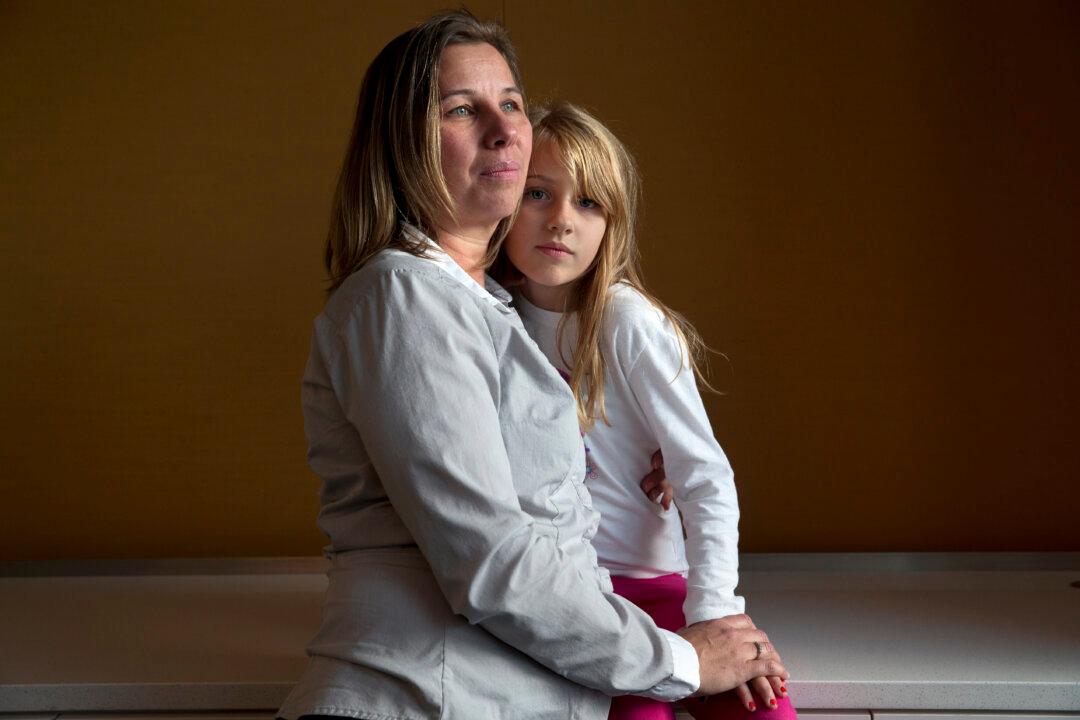Today the U.S. Supreme Court will hold oral arguments in yet another blockbuster case at the intersection of sex discrimination, workplace law, and reproductive justice. The central issue in Peggy Young v. United Parcel Service is simple enough: to what extent does the federal Pregnancy Discrimination Act of 1978 require employers to accommodate the health needs of pregnant women? But the potential repercussions of the gender rights case could be both complex and wide-ranging.
Young, a one-time delivery truck driver for UPS, asked in 2006 only that, since she was pregnant, she be excused from lifting anything over 20 pounds, per her doctor’s orders. But Young’s job description required her to sometimes lug up to 70 pounds, and UPS argued that assigning her to “light” duty would amount to special—that is, unfairly favorable—treatment. The company said its policy was only to accommodate people temporarily injured on the job and in a few other gender-neutral circumstances mandated by its union contract and the American with Disabilities Act. Young was forced to take seven months of unpaid leave, losing her medical benefits in the process.
Watched Closely
The resulting discrimination suit is being watched especially closely because of last summer’s momentous ruling in the Hobby Lobby contraception case, in which Justice Ruth Bader Ginsburg accused the court’s conservative majority of having a “blind spot” on women’s rights. (Among other things, the same five justices have thrown out a massive sex discrimination class action against Wal-Mart and rejected Lilly Ledbetter’s equal pay lawsuit.)
Women’s advocates are dismayed by the potential real-world impact that a ruling against Young might have for tens of millions of American women and their families, especially those on the economic margins. A recent study by the National Partnership for Women & Families found that many pregnant women are denied even the simplest accommodations, such as extra bathroom breaks; since the Pregnancy Discrimination Act became law, the percentage of expectant and new mothers who report being fired or laid off from their jobs has actually grown, notes a new report by the San Francisco–based public interest law firm Equal Rights Advocates.
Into Poverty
“Pregnancy discrimination doesn’t just harm women while they’re pregnant—it has ripple effects throughout their careers,” said Emily Martin, vice president and general counsel for the Washington D.C.–based National Women’s Law Center, which published its own report on the issue last year. “Losing a job when you’re pregnant, having to find a new job when you’ve just had a baby ... can make the birth of a child be an entrance into poverty.”
UPS, for its part, argues that its actions violated no laws, and that it afforded equal treatment to all its personnel, pregnant or not. Under the Pregnancy Disability Act, employers are required to treat expectant and new mothers the same as employees who are “similar in their ability or inability to work”—not to treat them better, the company said. UPS insists it was bound by its Teamsters contract, which permitted alternative work assignments under certain circumstances—for example, suspension or revocation of a driver’s license—but not in Young’s case. Nor was Young’s condition covered by the American with Disabilities Act, UPS added.
Pregnancy-related discrimination isn’t just a workplace issue. Claims have also surfaced in mortgage lending, housing, and education. Discrimination colors the way the criminal justice and child welfare systems treat pregnant women who use drugs or do anything else that authorities deem potentially harmful to an unborn child, women’s groups say. “The ideas that because of pregnancy, women can’t do certain things, or shouldn’t do certain things, or we can’t accommodate them doing certain things—they stem from the same place, the same stereotypes about gender roles,” said Sara Ainsworth, legal director of the nonprofit National Advocates for Pregnant Women.
Nina Martin has been a reporter and editor specializing in women’s, legal and health issues for more than 30 years. Her early career included stints at The Baltimore Sun, The Washington Post, and the International Herald Tribune. She is ProPublica’s first reporter covering gender and sexuality.

